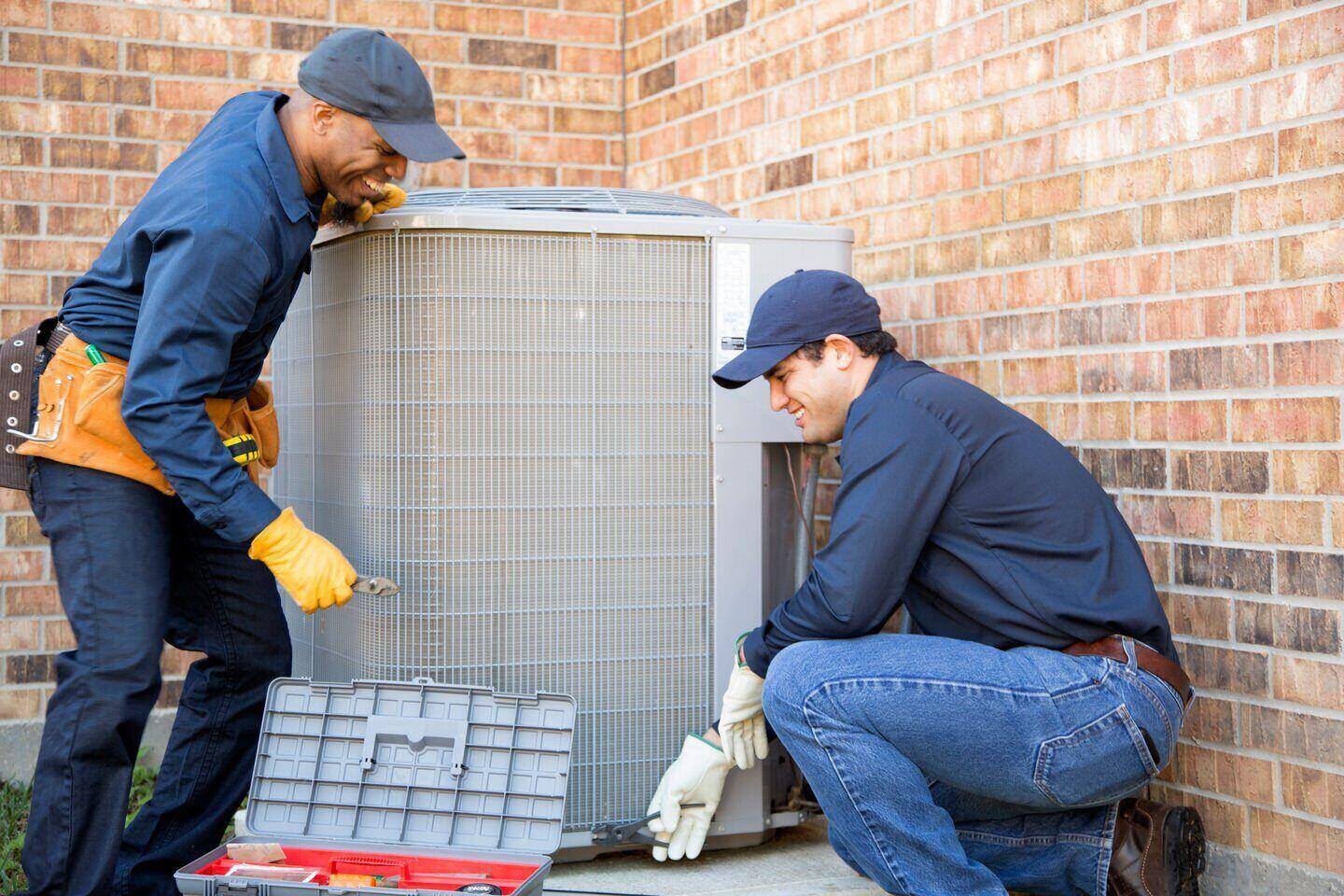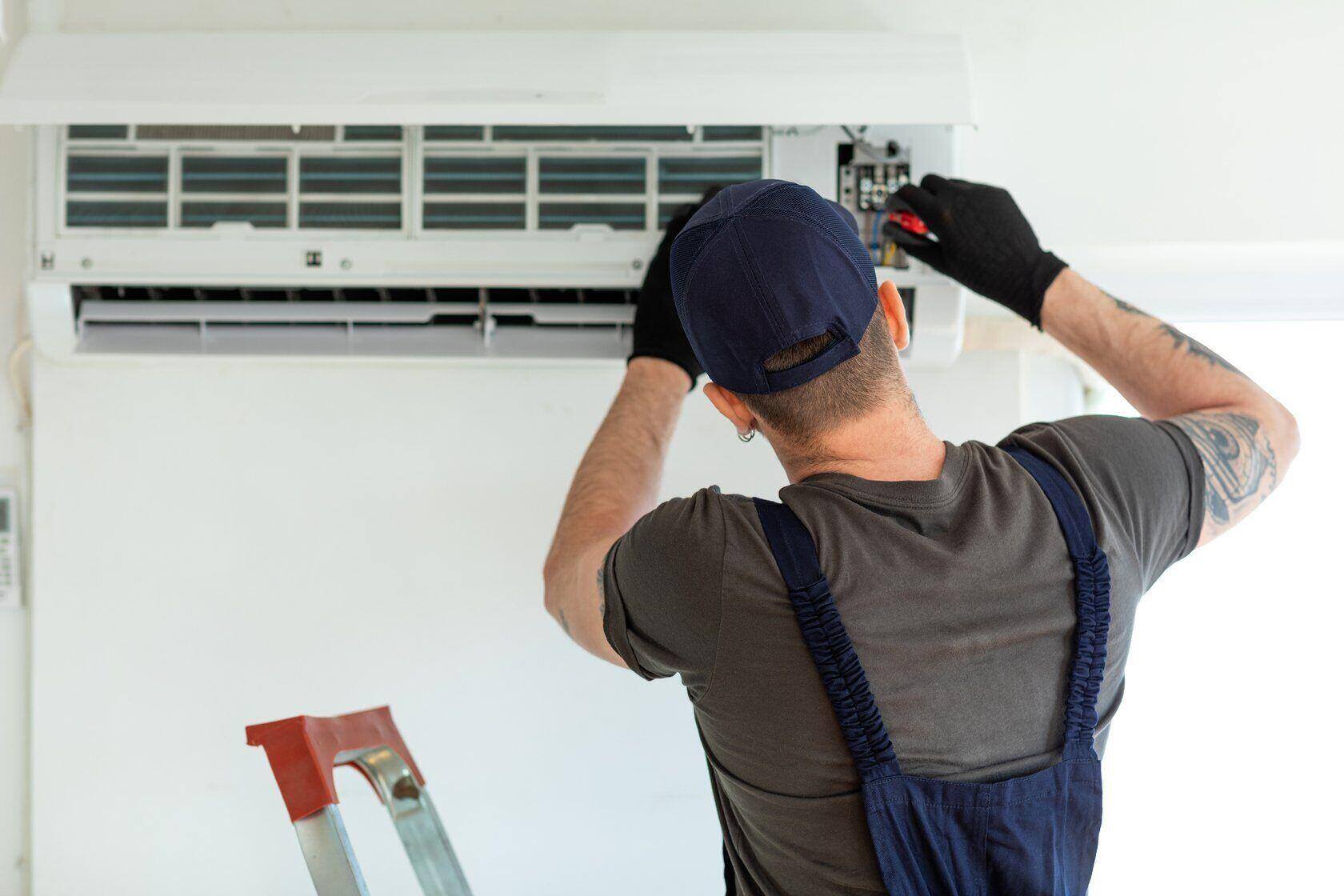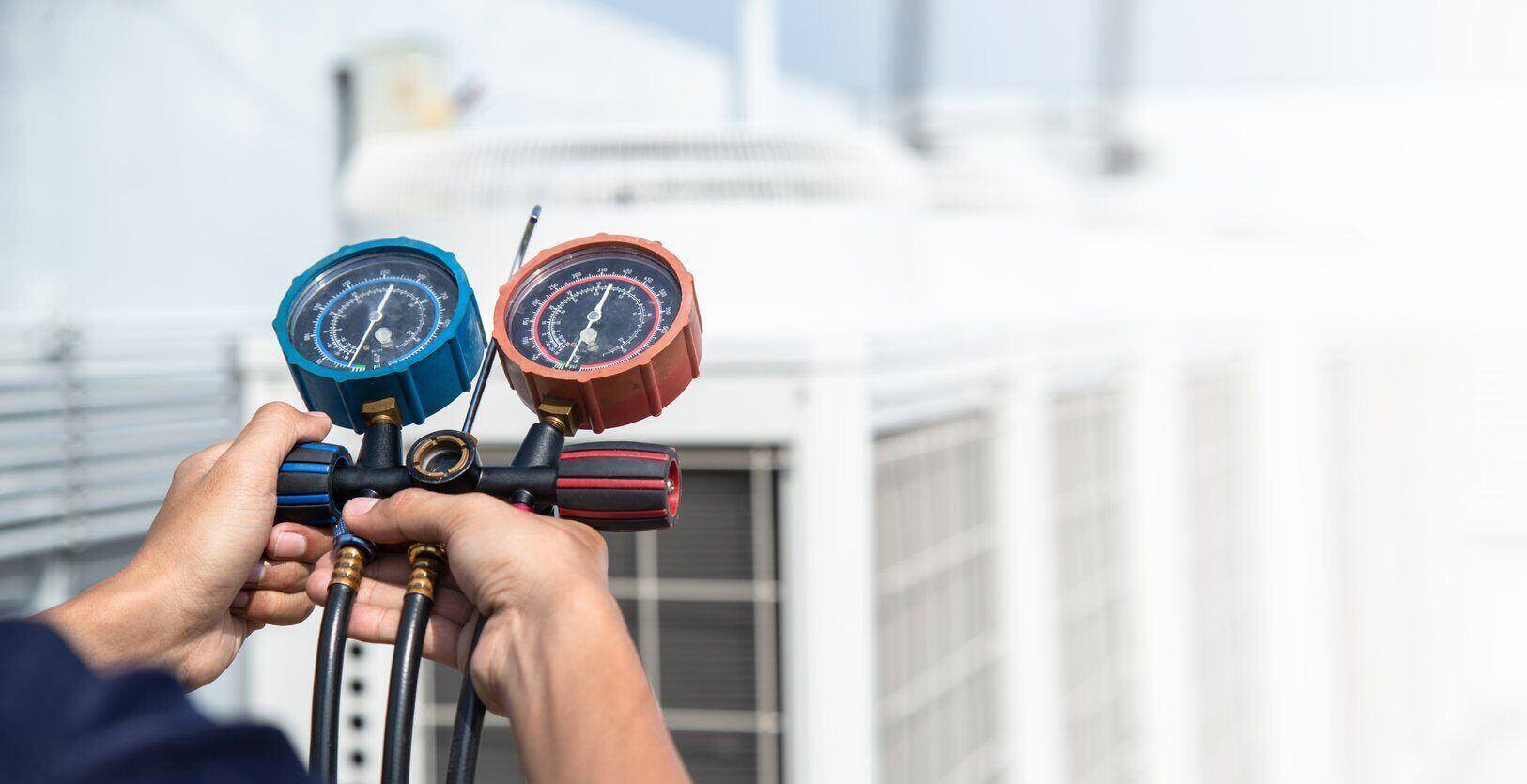
Is my HVAC covered by my home warranty?
Key takeaways:
Home warranties can possibly provide peace of mind by potentially covering costly repairs or replacements.
Not all home warranties are created equal; coverage, limits, and exclusions can sometimes vary greatly.
It's essential to carefully review and understand the terms and conditions of any home warranty before purchasing.
Consider factors like your home's age, systems, and appliances, as well as your budget, when choosing a home warranty.
Understanding what is and isn't covered by a home warranty is crucial to avoid surprises when you need to make a claim.
In this article, we'll:
- Define what an HVAC system is
- Go over the cost of an HVAC system
- Look at the best HVAC brands
- Discuss whether or not HVAC is covered by home warranty
- Answer common HVAC questions
Anchor tag for defining hvac system
What is an HVAC system?

We’ve all heard the term at one point or another. Whether you’re a long-term homeowner or searching the market for your first house, you’ll certainly become familiar with mentions of HVAC. Simply put, HVAC stands for heating, ventilation, and air conditioning. In essence, use the term “HVAC” to describe the comfort system that’s used to heat and cool your home while improving air quality.
No matter what part of the country you live in, your HVAC system will be an important part of your life year-round. Here’s what we mean.
Similarly, as the days cool down in the fall, you need to prepare your home for colder weather by ensuring that your heating system is ready to keep you warm for the duration of winter.
Your HVAC system is an important component of your home — especially when it comes to the summer and winter months. A chilly home can cause great discomfort, and a hot home can be almost unbearable.
With an aging HVAC system, seasonal changes may have you considering the length of time your HVAC system will keep you comfortable in your home. A home warranty provides added peace of mind by helping to cover the cost of repair or replacement of your home's appliances and systems.
Is your HVAC system covered by your home warranty? Keep reading as we cover the ins and outs of home warranties and decipher whether your HVAC is covered or not.
What may not be included in your home warranty coverage
If you’re purchasing home warranty protection, you may assume that all systems and appliances are covered. Sadly, this isn’t accurate. Home warranty plans are designed to repair or replace certain appliances and systems based on the specifics of your plan. Since your HVAC system is essential, we highly recommend that you purchase a plan that includes coverage for heating and air conditioning systems.
Your garage door may not be covered by your home warranty, but the garage door opener is probably covered. Your fireplace is also probably not covered, but your gas lines will be.
Your warranty likely won’t cover your sprinkler system, roof, walls, windows or doors.
Finally, any damage outside of normal wear and tear will not be covered by your home warranty, leaving you on the hook for any required repair costs due to other causes.
Does your home warranty cover your HVAC system?

Perhaps. It depends on the terms of your plan. That’s why it’s important to pay attention to the plan you select.
A home warranty is a contract that provides coverage that helps with the costs of repairs and replacements and provides access to network service providers. Your appliances must have a mechanical failure from normal wear and tear to be considered for coverage. Some home warranty companies offer home warranty plans that feature only a few home appliances and systems, and some offer varying levels of add-on warranty protection.
Generally, most home warranty companies cover HVAC systems. There may be some elements of the heating and cooling systems that are not included in your coverage, but these will be outlined in your contract terms and conditions.
What is covered by an HVAC warranty?
When researching home warranty coverage for your HVAC system, know that the warranty will extend beyond the manufacturer’s warranty. It also covers different issues than homeowners insurance will cover. For example, structural damage or the loss of your property due to theft or accidental damage caused by floods or fires will be covered under your homeowners insurance rather than your warranty.
It’s important to note that with the purchase of a home warranty, you do still bear some responsibility. You should maintain your appliances and home systems so any needed repairs aren’t due to negligence. You will also have to get in touch with your warranty company when issues arise to coordinate with a service provider and pay a nominal fee at the time of service.
What does a home warranty plan cover on an HVAC system?
Most home warranties cover the components of a central air conditioning system and a heating system, like forced air (gas, electric or oil), wall heaters, water heaters and more.
Will a home warranty replace an HVAC system?
While a home warranty plan will replace an HVAC system, every step will be taken to repair it first. The HVAC maintenance tips that you’ll find below will go a long way toward reducing the need for repairs and a major overhaul with a replacement.
How much does a new HVAC system cost?

According to Forbes, a new HVAC system will cost an average of $8,000 in 2023. This is a lot of money to have to worry about coming out of pocket. Additionally, remember that this is usually an unexpected expense. There’s no way to predict when your air conditioning system or your heating system will suddenly stop working. This is the major benefit of having a home warranty plan. When your HVAC system breaks down, you’ll know exactly who to call for help to cover the unexpected hefty bill.
Who installs HVAC systems?

Another benefit of having a home warranty plan is the fact that you won’t have to worry about installing an HVAC system on your own. When you hire the right company, you’ll have a network of qualified technicians standing by to do the hard, complicated work for you. Typically, HVAC systems are installed by qualified HVAC technicians. While there are lots of DIY projects that can be fun, this isn’t usually one of them. Installing an HVAC system takes time and involves many intricacies. From turning off your circuit breaker to adding filters and ductwork, this can be a particularly complicated task.
Understanding HVAC labor and manufacturer warranties
When it comes to HVAC warranties, there are a few things you need to know. Let's start with the good news. You'll be thrilled to know that, typically, HVAC warranties are pretty good. Most companies will offer either a 5-year or a 10-year warranty on an HVAC system.
Secondly, it's important to note that there are two kinds of HVAC warranties. On one hand, there's an equipment warranty. This kind of warranty covers failures and malfunctions. So if something stops working, you'll get the part replaced for free.
On the other hand, there's a labor warranty commonly associated with HVAC systems. This warranty is provided by the company that installs your HVAC system. With the right installation, your heating and cooling systems can function properly for years to come.
When it comes to deciding on what brand of HVAC system to go with, you'll discover that most of the major brands will offer a similar 5-10 year manufacturer warranty option. In some cases, registering your system could extend your warranty plan. So, make sure that your system is registered. This includes popular brands such as Trane, Rheem and Lennox.
Buying an HVAC system

If you're wondering where to buy an HVAC system, here are a few things to consider before making a major purchase:
- Don't rush: Buying an HVAC system is a big deal. Give yourself time to shop around to ensure you're getting the right price.
- Consider major and less known companies. Major retailers will have plenty of HVAC options for you. However, you may find that there are some local HVAC companies in your area with competitive rates as well.
- Pay attention to the manufacturer's warranty. As we mentioned, HVAC systems come with two kinds of warranties. Make sure you have both equipment and labor warranty with your purchase.
Common HVAC Questions

How long do HVAC systems last?
10-30 years typically with an average life expectancy of 20 years.
How much does a 2 zone HVAC system cost?
According to homeguide.com, the average cost is $1,700 to $4,500.
What is a heat pump HVAC?
A heat pump is a type of HVAC system that moves heat from one place to another using electricity.
How do you tell if your HVAC has a heat pump?
You can check the outdoor unit and look for a metal plate that should be labeled “heat pump." Otherwise, write down the model number and do some research online.
Do all HVAC systems have heat pumps?
No. Some have heat pumps and some have a conventional system.
What is a split system HVAC?
This is a heating or cooling system that has both indoor and outdoor units.
What is a mini split HVAC system?
Mini split systems are used in homes without existing ductwork. They are efficient because they only generate the amount of cooling that's needed.
What is static pressure in HVAC?
This is a term used to describe the resistance to airflow in HVAC units.
How to diagnose HVAC problems?
Complete a visual inspection of the HVAC unit or hire a professional to check it out.
How much do people charge to diagnose HVAC problems?
Usually between $75 and $200.
How do you clean HVAC coils?
Cleaning HVAC coils is a multi-step progress. Start by turning off your thermostat and circuit breaker to be safe. Next remove the access panel and find the coils. Use a soft brush to remove any dust and debris.
What are dampers in HVAC?
A plate that regulates airflow to specific areas of the home.
What is a Variable Refrigerant Flow (VRF) HVAC?
Variable Refrigerant Flow is a system that provides cooling and heating to multiple zones.
What is superheat in HVAC?
The amount of heat added to vapor above boiling point. This shows the amount of heat your Freon has gathered.
Where is my HVAC filter?
The filter is located inside the access panel between the return duct and the air handler.
What are the must have HVAC tools?
This list is an extensive one. Start with pliers, a hammer, a screwdriver and a flashlight.
What is a plenum HVAC?
A plenum is an air distribution box designed for forced-air systems on residential homes and commercial businesses. It is part of the ductwork, but far different than an air duct, as these important boxes handle air as it enters the ducts and helps to recirculate it within a system.
What is a sequencer HVAC?
The sequencer helps regulate the system and prevents overheating.
What is RTU in HVAC?
An RTU is a Rooftop Unit where all components are packaged on a roof.
Does HVAC use gas or electricity?
Both. Electric furnaces are more efficient.
Do I need a license to buy HVAC equipment?
No, you do not.
What to look for in an HVAC warranty company
When it comes to purchasing a home warranty contract, there are some things you shouldn’t overlook:
- Keep receipts and records of your regular maintenance so you can prove that your appliances are breaking down due to wear and tear rather than negligence.
- There may be a waiting period for your coverage to begin. You may have to wait 30–45 days before your home warranty is valid.
Cinch Home Services offers home warranty plans that are affordable for any budget and can be tailored to fit your needs. We offer excellent customer service when you need to place a claim. Contact Cinch Home Services for your quote today!
Maintaining your HVAC system

While having a home warranty plan is an excellent security blanket, there are steps you can take to ensure proper maintenance of your HVAC system. Here are some helpful tips:
- Hire a professional: No matter how much we try to do ourselves, getting a professional tech in for maintenance is always best.
- Change your filters: Changing your HVAC filters helps to improve the air quality in your home. Get rid of dust and prevent allergens by changing filters every 30-45 days.
- Perform a visual inspection: Are there lights on that shouldn’t be? Do you need new batteries for the thermostat? Does something look broken or out of place? A visual inspection of your HVAC systems can uncover potential issues that may be an easy fix.
- Keep the area clean: Sometimes, helping your HVAC system run properly is as simple as removing all of the old boxes and household items you have stacked around it. Your HVAC system is not a storage area. By eliminating clutter, you can prevent fire hazards, make maintenance easier and improve the appearance of your home as well.
- Maintain the right temp: Regulating the temperature in your home goes a long way in the quest to keep a healthy HVAC system. We highly recommend installing a programmable thermostat. This will allow you to control when the system is running when you’re not at home to save energy and reduce wear and tear.
- Add a carbon monoxide detector: An HVAC system relies on a gas refrigerant. In the event of a leak, a carbon monoxide detector can be a lifesaver (literally).
* Subject to plan terms and conditions.
*The information in this blog library is intended to provide general guidance on home warranties, and on the proper maintenance and care of systems and appliances in the home. Not all of the topics mentioned are covered by our home warranty or maintenance plans. Please review your home warranty contract carefully to understand your coverage.
*Our blog library may link to third-party sites that offer products, services, coaches, consultants, and/or experts. Any such link is provided for reference only and not intended as an endorsement or statement that the information provided by the other party is accurate. We are not compensated for any products or services purchased from these third-party links.
Is your HVAC system covered by your home warranty? Keep reading as we cover the ins and outs of home warranties.
